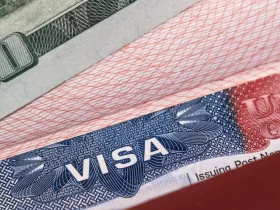Financial stability is a vital goal for most people, but it can be threatened during a personal crisis. Whether due to a medical emergency, job loss, divorce or other stressful situation, maintaining financial stability can be challenging. Here are some practical tips to help you navigate these difficult times without compromising your financial health.
1. Assess Your Current Financial Situation
The first step to maintaining financial stability in a crisis is to have a clear understanding of your current situation. Make a list of all your income, expenses, debts and assets. This assessment will help you identify areas where you can reduce expenses and prioritize your needs.
2. Establish a Realistic Budget
Creating a budget is essential to control your finances during a crisis. Prioritize essential expenses such as housing, food, utilities and medicine. Cut or eliminate non-essential expenses such as entertainment, eating out and impulse purchases. A well-planned budget will allow you to stretch your resources and avoid unnecessary debt.
3. Emergency Fund
If you don’t already have an emergency fund, try to create one as soon as possible. This fund should cover three to six months of essential expenses. If you already have an emergency fund, use it wisely to cover critical expenses. Avoid using credit cards or high-interest loans unless absolutely necessary.
4. Communicate with your Creditors
If you are in debt and finding it difficult to make payments, it is crucial to communicate with your creditors. Many times, financial institutions offer flexible payment plans, grace periods or may even temporarily suspend payments without additional interest. Being proactive and explaining your situation can relieve some of the financial pressure.

5. Seek Financial Counseling
Consider talking to a financial advisor. A professional can help you create a personalized financial plan, offer strategies for managing your debt and advise you on safe investments. In some cases, nonprofit organizations also offer free or low-cost advice.
6. Generate Additional Income
Explore opportunities to generate additional income. This could include temporary jobs, freelancing or selling items you no longer need. The extra money can help you cover essential expenses and avoid going further into debt.
7. Protect your Mental and Physical Health
Financial stability depends not only on good financial habits, but also on your overall well-being. A personal crisis can be extremely stressful, and it is vital to take care of your mental and physical health. Seek support from friends, family or mental health professionals. Stress can negatively affect your financial decisions, so staying healthy will allow you to make more rational decisions.
8. Review and Adjust Your Plan Regularly
During a crisis, circumstances can change quickly. It is important to review and adjust your financial plan regularly. Re-evaluate your budget, your income and your expenses to make sure you are adapting to any changes in your situation.
9. Avoid Impulsive Financial Decisions
In times of crisis, it is easy to make impulsive financial decisions out of desperation. Before making drastic changes, such as selling major assets or taking on large loans, consult with a financial advisor or think carefully about the long-term consequences.
10. Take Advantage of Available Resources
Investigate whether you qualify for any type of government assistance, such as grants, unemployment insurance or food assistance programs. These resources can be a lifeline during difficult times and help you maintain your financial stability.
In summary, maintaining financial stability during a personal crisis requires careful planning, open communication and the ability to adapt to new circumstances. By following these tips, you can better manage your finances and mitigate the impact of the crisis on your financial life.






































Leave a Reply